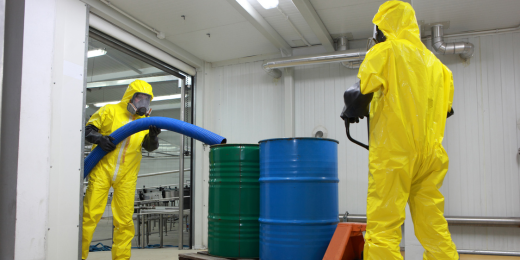Little Known Facts About Reclaim Waste.
Little Known Facts About Reclaim Waste.
Blog Article
Reclaim Waste Things To Know Before You Buy
Table of ContentsHow Reclaim Waste can Save You Time, Stress, and Money.A Biased View of Reclaim WasteThe 3-Minute Rule for Reclaim WasteWhat Does Reclaim Waste Mean?8 Simple Techniques For Reclaim Waste
Residential sewer waste refers to the waste and products from a household septic storage tank. The correct administration and disposal of domestic sewer waste need liquid waste to be moved to a sewage treatment plant where the appropriate approaches and devices are used to cleanse and dispose of waste.
Commercial waste often consists of prospective threats, such as flammable materials or a combination of liquid and strong waste products, and requires an advanced and in-depth disposal procedure. The disposal of commercial waste normally entails the filtration of waste prior to transport to guarantee secure and proper disposal. Hazardous waste is developed from by-products and runoff of industrial procedures and manufacturing.
This kind of waste can not use the exact same sewer administration transportation or processes as septic or industrial fluids. The hazardous waste monitoring procedure calls for the inspection and testing of liquid waste before it goes through the disposal procedure (liquid waste disposal melbourne). Overflow waste is the liquid waste that comes from overflow and excess stormwater in extremely booming locations or cities
Runoff waste can cause contamination and flooding if not taken care of properly. Find out more regarding sewage system cleaning and waste management. Making sure proper waste administration can stop calamities and reduce ecological harm. Both people in domestic setups and professionals in industrial or production markets can profit from understanding the procedures and laws of fluid waste monitoring.
Not known Incorrect Statements About Reclaim Waste
Contact PROS Providers today to find out regarding our waste management and disposal services and the proper ways to care for the fluid waste you generate.
(https://www.callupcontact.com/b/businessprofile/Reclaim_Waste/9368278)Do you know what takes place to your water when you end, flush the toilet or drain pipes the cleaning maker? No? Well, it's worth understanding. This so-called 'wastewater' is not just an essential resource but, after therapy, will be launched to our land, waterways or the sea. Utilized water from toilets, showers, bathrooms, kitchen sinks, washings and industrial procedures is called wastewater.

water used to cool machinery or tidy plant and equipment). Stormwater, a form of wastewater, is runoff that flows from agricultural and metropolitan areas such as roofs, parks, yards, roadways, paths and seamless gutters into stormwater drains pipes, after rain. Stormwater moves unattended directly to regional creeks or rivers, eventually getting to the ocean.
The Ultimate Guide To Reclaim Waste
In Queensland, a lot of wastewater is dealt with at sewer therapy plants. Wastewater is transferred from domestic or industrial sites through a system of drains and pump terminals, understood as sewerage reticulation, to a sewage treatment plant.
The Division of Natural Resources suggests regional federal governments regarding managing, operating and maintaining sewage systems and therapy plants. In unsewered locations, city governments might call for owners to set up private or home sewage therapy systems to deal with domestic wastewater from toilets, cooking areas, washrooms and washings. The Department of Natural Resources authorises using family systems when they are verified to be effective.
Most stormwater obtains no treatment. In some new communities, therapy of some stormwater to remove litter, sand and crushed rock has begun making use of gross contaminant traps. Wastewater therapy useful reference happens in four phases: Eliminates solid issue. Bigger solids, such as plastics and various other objects wrongly discharged to sewers, are removed when wastewater is travelled through displays.
Wastewater then moves into huge storage tanks where solids resolve and are eliminated as sludge. Oil and residue are skimmed from the surface area. Utilizes tiny living microorganisms knows as micro-organisms to damage down and eliminate remaining liquified wastes and fine particles. Micro-organisms and wastes are integrated in the sludge. Removes nitrogen and phosphorus nutrients that can cause algal blossoms in our waterways and intimidate aquatic life.
Our Reclaim Waste Statements
Nutrient elimination is not readily available in all sewage therapy plants because it requires expensive specialised equipment. It is becoming more common in Queensland. Clear liquid effluent produced after treatment may still consist of disease-causing micro-organisms. If this effluent is released into waterways such as rivers or the sea, the micro-organisms will eventually die out.

The majority of wastewater moves right into the sewerage system. Under the Act, neighborhood governments carry out authorizations and licences for eco relevant tasks (ERAs) entailing wastewater releases that could have a regional impact.
Some Ideas on Reclaim Waste You Should Know
Or else, samples are considered lab analysis. Often lots of examinations are needed to establish the levels of each of the various toxins such as oils, heavy metals and pesticides in water. Surveillance gives factual information regarding water high quality and can validate that permit conditions are being met. The info acquired via surveillance provides the basis for making water quality decisions.
Report this page